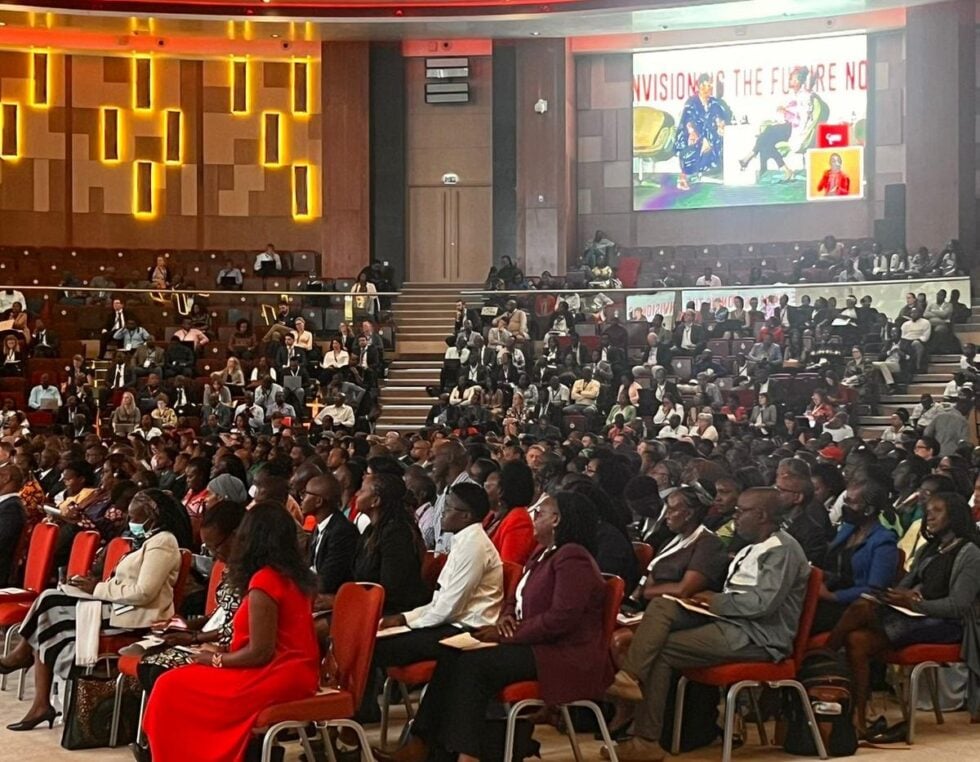
However, it is also a day to reflect on the many obstacles that are still preventing women worldwide to achieve their full potential in society and the workplace.
Shortage of women leaders in healthcare in Africa
In healthcare, 70% of the workforce globally is women but only 30% of them are in management positions.
In Africa, the figures look even more dismal with issues such as a lack of access to education, inequality in the workplace, a significant payment gap between men and women working in the sector and gender violence playing a major role in deterring women from moving up the career ladder to become managers and leaders.
An analysis by the World Health Organisation has shown that in 2019 only 28% of physicians in Africa were women. The continent also has the lowest proportion of female doctors and nurses in the world.
The role of women in achieving UHC
At the Africa Health Agenda International Conference (AHAIC) 2023 currently being held in Kigali, Rwanda much focus is being placed on the role of women leaders in improving the health of women in Africa and developing a universal health coverage (UHC)system with presentations focusing on gender equity and the role of women in health.
In an article by Dr Norah Obudho, Health Integration and East Africa Director, WomenLift Health and Dr. Florence Temu, Country Director, Amref Health Africa in Tanzania originally published in Africa.com1 earlier this year, the authors point out that decisions on health on the continent are frequently made without women’s input, even when issues affect them directly such as maternal and reproductive health.
“While it would be unfair and simplistic to blame one gender for the loss of millions of lives due to infectious and non-communicable diseases, poor quality health services, and lack of access to essential care, there is a direct correlation between Africa’s health outcomes and its health leadership,” the authors write.
They note that leadership that is not representative of the people it serves, be this across racial, gender, or socio-economic lines, will not and cannot address the obstacles in ensuring quality healthcare for all.
“We need to reimagine the face of health leadership if we are to rebuild our health systems and equip them to move towards and sustain universal health coverage (UHC).
“By placing the needs of women at the centre of health system design and delivery and elevating their voices in health, we can unlock gender equity at the leadership level and add impetus to Africa’s journey towards UHC. In doing so, we would also allow women to not only be consumers of health services but to be the leaders that our health systems need if they are to meet our needs and withstand future health shocks,” the authors write.
In a message in celebration of International WHO Regional Director for Africa, Dr Matshidiso Moeti lauded the role women are playing in the advancement of transformative digital technology to promote gender equality and meeting the health and development needs of women and girls.
“The adoption of digital health and other technological innovations has positively impacted electronic medical records, health data management, security, and effective communication between health workers, patients, and community stakeholders, Dr Moeti said, acknowledging the role women are playing in developing and applying these innovations to improve access to quality healthcare.
“We have seen that women can be innovators and contribute to transforming the health of all people on the continent, Dr Moeti said adding that in 2018 more than a third of the over 2 700 submissions from 77 countries the WHO has received for its Africa Innovation Challenge in 2018 were from women. The initiative is aimed at finding solutions to Africa’s unmet health needs and recognise home-grown innovation s that could solve the continent’s health challenges.
The submissions received included the use of drones in the delivery of healthcare in Ghana, Rwanda, Sierra Leone, South Africa and Malawi; robots for clinical assistance in Rwanda; satellite imagery-driven vulnerability mapping dashboards in Ghana, Nigeria and Sierra Leone; and WhatsApp Chatbots in South Africa.
In the area of reproductive health, innovative technologies such as YeneHealth, a digital innovation supporting women to gain self-agency; NoviGuide 2.4, a neonatal application helping to recognise and act when danger signs are noticed; and Safe Delivery smartphone applications being tested in eight countries have shown added value to reproductive, maternal, newborn, child and adolescents services when deployed widely.
However, more should be done to remove the digital gender divide, mainly impacting vulnerable women and girls, especially those in rural and remote areas with low education and socioeconomic status, Dr Moeti urged. He said this could be done by creating awareness about the digital gender divide, advocating for policies and legal frameworks to keep women and girls safe and promoting women’s participation in the development of health systems and in science and technology.
Reference:
- https://www.africa.com/placing-women-at-the-centre-of-health-leadership-in-africa-key-to-achieving-uhc/